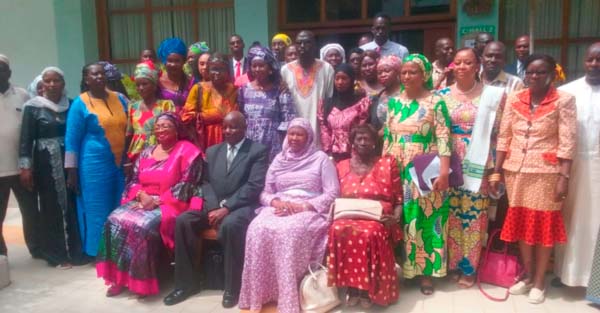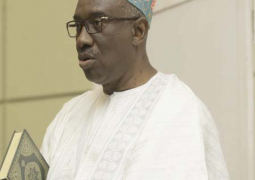
A
two-day consultation by civil society on the proposed truth, reconciliation and
reparation commission ended on Wednesday, at the Paradise Suites Hotel.
It
was organized by the African Centre for Democracy and Human Rights Studies
(ACDHRS) in collaboration with the Gender Action Team and the Women’s Forum for
Peace and Security in Senegal, Gambia and Guinea Bissau.
The
consultation meeting drew participants from all over The Gambia as well as
Senegal and Guinea Bissau.
The
Minister of Women’s Affairs and the overseer of the Office of the Vice
President, Mrs Fatoumata Jallow-Tambajang, in declaring the consultation open,
outlined the challenges and vision of the Barrow administration in the New
Gambia.
In
general, the participants deliberated on the relevance of the Truth,
Reconciliation, and Reparation Commission (TRRC), its advantages and
disadvantages as well as their expectations of the TRRC.
In
addition, they explored ways and means by which the proposed TRRC would
contribute towards the building of social solidarity and the establishment of
trust among and between citizens and state institutions
Participants
were also concerned with what constitutes a transition as well as the likely
challenges that may be faced in the establishment and implementation of the
proposed TRRC.
Furthermore, they initiated ideas and
strategies for overcoming such challenges and then advanced reasons why either
justice or peace should be given priority.
They
also outlined their anticipated types of reforms and in what spheres of
society.
As
well as discussing the forms of punishment that should be meted out to
perpetrators, participants also critically evaluated the claim that amnesty is
tantamount to impunity and then enumerated crimes that should be excluded from
amnesty.
They
also mentioned steps that should be taken to avoid a recurrence of the past
nightmare. The meeting also identified some roles for religious and traditional
leaders in the truth and reconciliation process.
Participants
agreed that ownership and inclusiveness are desirable principles to be achieved
and then outlined steps to ensure the realization of both principles.
They
also identified elements that should be incorporated in engendering the TRRC
process.
In
respect of gender, they highlighted gender related crimes that should be given
priority and the roles they envisaged for women and youth as well as other
marginalized groups.
Moreover,
participants proposed ways in which the proposed TRRC should deal with tricky
issues in which women and youth are victims and or perpetrators.
They
also dilated on the period the TRRC should cover together with its terms of
reference, mandate or function, composition, tenure, and its procedures.
In addition, they advanced reasons why peace
building is an essential element of the reconciliation process and the ways in
which the reconciliation process could be enhanced.
In
conclusion, they identified certain characteristic features of a victim, a
perpetrator together with how perpetrators and victims could be motivated to
testify before the TRRC.
They
also identified the stakeholders in the TRRC process and discussed at length
how they could be motivated to participate fully in the TRRC process.
Participants also examined the cost-benefit
analysis of tracking perpetrators who do not bring themselves to the TRRC.
The consultation was brought to a close by Mr Hussein Thomasi, special adviser to the Attorney General and Minister of Justice, who stood in for his principal.



